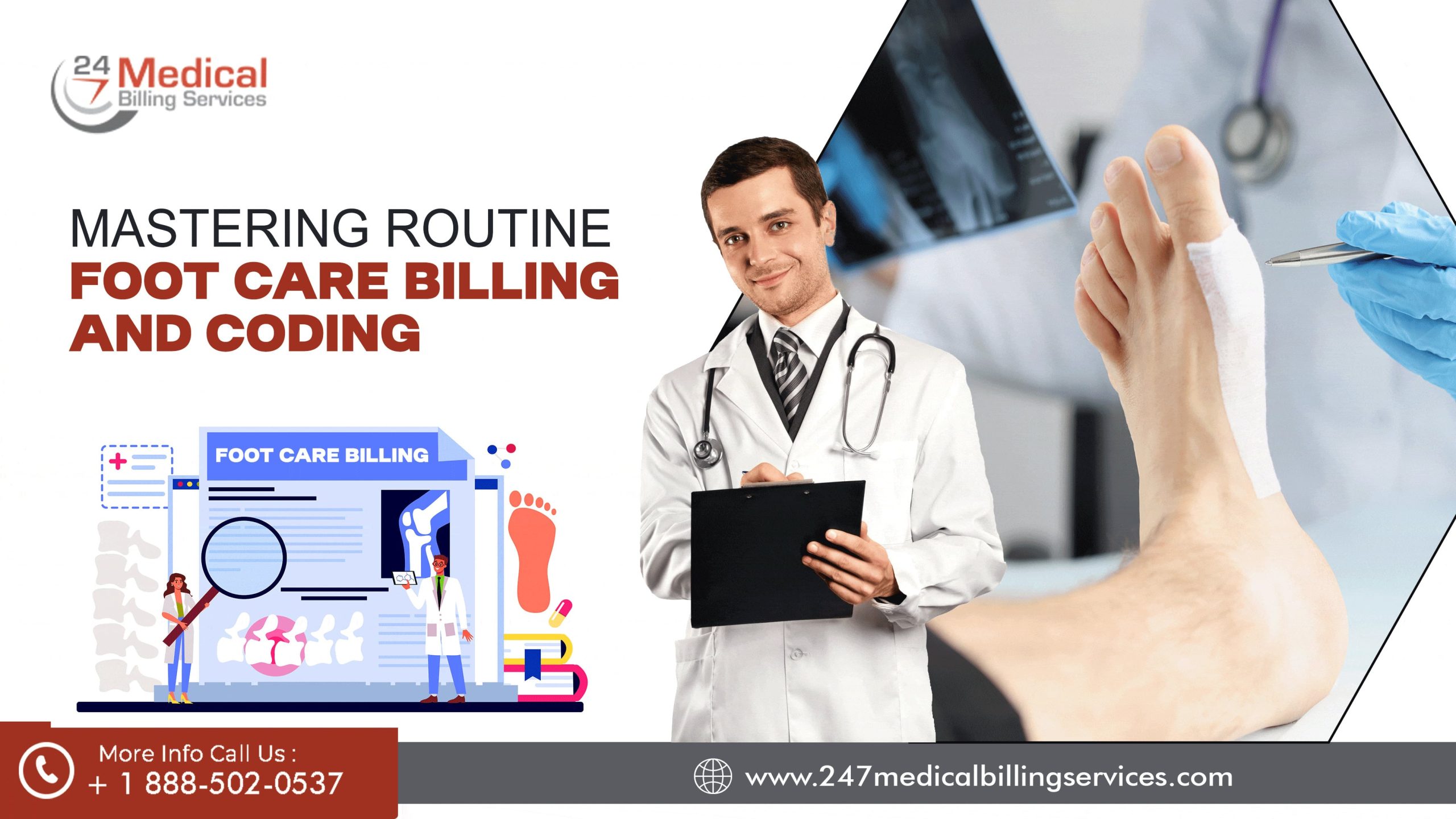
Mastering Routine Foot Care Billing and Coding
Routine foot care billing and coding in podiatry requires meticulous attention to detail and adherence to specific coding standards to ensure accurate reimbursement and prevent claim denials. Podiatrists often encounter a wide range of foot conditions, both chronic and acute, necessitating comprehensive documentation and coding practices.
In this specialized area of medical coding, using specific ICD-10, CPT, and HCPCS codes is paramount to accurately report diagnoses and treatments provided during routine foot care procedures. Given the complexity of podiatry services, it's essential to select codes that reflect medical necessity requirements, as reimbursement is often contingent upon demonstrating the necessity of the services rendered. Let’s understand the routine foot care billing and coding guidelines:
Routine Foot Care Exclusions
Medicare usually doesn't cover routine foot care unless certain conditions apply. Here are the situations where Medicare might cover routine foot care:1. Foot Care Integral to Covered Services
If foot care is necessary for other medical treatments that Medicare does cover, it may be included.2. Treatment of Ulcers, Wounds, or Infections
Medicare covers foot care related to diagnosing and treating ulcers, wounds, or infections on the feet.3. Nail Trimming for Cast Fitting
It might be covered separately if trimming or cutting nails is necessary to fit a cast after a fracture.4. Foot Care due to Systemic Conditions
If overall health conditions affect the feet, such as metabolic, neurologic, or vascular issues, Medicare may cover foot care.5. Wart Treatment
Treatment for warts on the foot is covered to the same extent as treatment for warts elsewhere on the body.6. Mycotic Nails Treatment
For mycotic (fungal) nail treatment to be covered, specific criteria must be met:- Ambulatory Patients: Those who can walk without assistance must show clinical evidence of fungal nail infection along with marked limitation of movement, pain, or secondary infection due to the infected toenail.
- Non-Ambulatory Patients: Those who cannot walk without assistance must also demonstrate clinical evidence of fungal nail infection and suffer pain or secondary infection due to the infected toenail.
Medicare Covered Foot Care CPT Codes
| CPT Code | Description |
| 11055 | Paring or cutting of benign hyperkeratotic lesion (e.g., corn or callus); single lesion |
| 11056 | Paring or cutting of benign hyperkeratotic lesion (e.g., corn or callus); 2 to 4 lesions |
| 11057 | Paring or cutting of benign hyperkeratotic lesion (e.g., corn or callus); more than four lesions |
| 11719 | Trimming of non-dystrophic nails, any number |
| 11720 | Debridement of nail(s) by any method(s); 1 to 5 |
| 11721 | Debridement of nail(s) by any method(s); 6 or more |
Modifiers for Medicare Covered Foot Care
| Modifier | Description |
| Q7 | One Class A finding |
| Q8 | Two Class B findings |
| Q9 | One class B and 2 class C |
Guidelines
- Class A Findings: Nontraumatic amputation of the foot or integral skeletal portion thereof.
- Class B Findings: Absent posterior tibial pulse, advanced trophic changes, and absent dorsalis pedis pulse.
- Class C Findings: Claudication, temperature changes, edema, paresthesias, and burning. LOPS: Loss of Sensory Protection from Diabetic Neuropathy.
Documentation Requirements
- When using Q7, Q8, or Q9 modifiers, providers must document appropriate signs and symptoms along with complicating conditions.
- For patients with systemic conditions justifying coverage, the medical record must include the name of the treating or diagnosing doctor of medicine or osteopathy.
Streamline your Routine Foot Care Billing and Coding
Are you a podiatry clinic struggling to keep up with the complexities of medical billing and coding for routine foot care? It's time to streamline your operations, ensure timely claims submissions, and increase payment acceptance rates. At 24/7 Medical Billing Services, we understand the challenges you face, so we offer a tailored solution as a part of outsourcing routine foot care billing and coding.Maintaining successful coding efforts and avoiding unpaid claims can be overwhelming and time-consuming for your clinic. Our team streamlines the entire process, automating coding procedures and insurance verification. With 24/7 Medical Billing Services, your team can effortlessly keep track of up-to-date medical records and easily report each necessary procedure code. So what are you waiting for? Contact us right now to streamline your billing and coding operations while enhancing reimbursements.

.png)